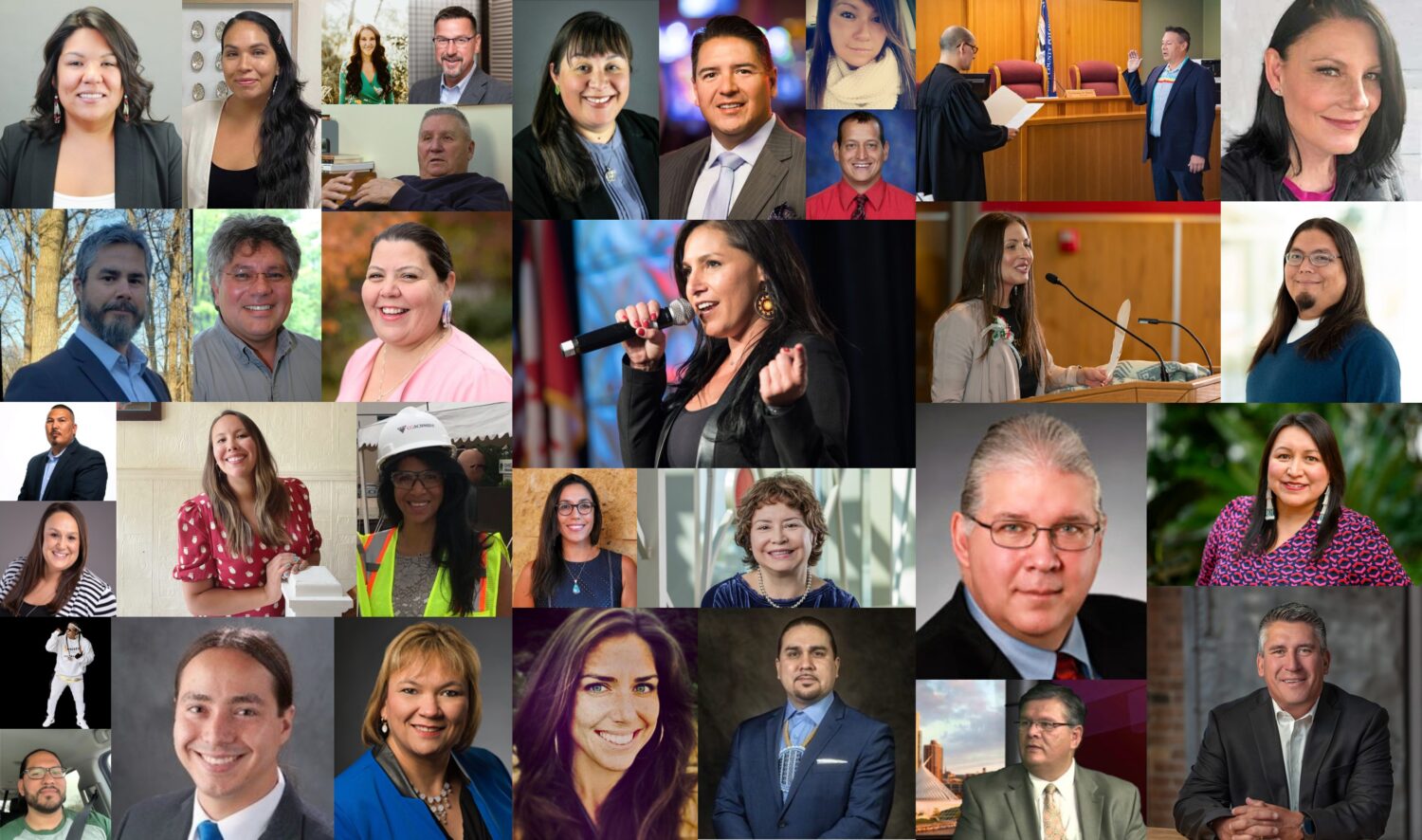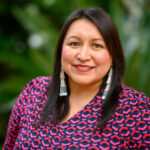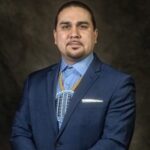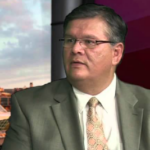
Just months after we published our first news stories in August 2015, we tried something new: we listed and published brief biographies of the state’s 28 Most Influential Black Leaders. People really liked it, shared it on social media, told us who else should have been on that list. Many asked me if we’d do another list the next year; I said yes, we probably would.
We did more than that. That next year, we published another list of the state’s most influential Black leaders, as well as a list of the state’s most influential Latino leaders. Almost immediately, we started hearing an important and very reasonable question: what about the state’s Asian American and Indigenous leaders?
We wanted to do those lists, but we wanted to do them right. It took us some time to build the authentic relationships within those communities, and to gain their trust. I’m glad and proud that we took that time and did that work; it resulted in us publishing those lists for the first time in 2020.
This week we are proud to present the fourth annual edition of Wisconsin’s Most Influential Native American leaders.
Every year, with every list, I’ve intended these lists to highlight the beauty of the diversity across our state. I want kids here in Wisconsin to see role models of people who are succeeding, to know that it’s possible for people of color to achieve great things here.
This week we shine a statewide spotlight on the dedicated leaders of Wisconsin’s Indigenous communties. The people we highlight this week are elected leaders, business leaders and community leaders, doing difficult, important work, often in the face of discrimination and literally generations of oppression.
We are also aware that this list, like every other, is not comprehensive. It’s obvious just from the number of nominations that there are far more than 33 influential Indigenous leaders doing good work in Wisconsin. We hope you will let us know about people in your community who we can include on future lists. For now, though, we just want to introduce you to a few of the people doing the work, often behind the scenes and without the accolades, across Wisconsin.
You might know a few of these names, but there’s a good chance that most of them will be new to you. I urge you to get to know them. Reach out to those living and working in your communities. Learn from them, network, create partnerships. And spread the word — let others in your network know that we have people of all ethnicities living and working across Wisconsin to make sure everyone here can thrive.
Henry Sanders
CEO and Publisher
Madison365
 Carla Vigue was appointed in January as director of tribal relations at the University of Wisconsin–Madison. A member of the Oneida Nation, she most recently served as director of communications, events and community engagement for the National Council of Urban Indian Health in Washington, D.C. Prior to that, she served for more than a decade as communications director for the Wisconsin Department of Veterans Affairs, where she developed and implemented a statewide strategy for engaging tribal veterans. Vigue also has held positions with the National Indian Gaming Association, the Wisconsin Department of Administration and the office of Governor Jim Doyle. She earned a bachelor’s degree in political science from Illinois Wesleyan University in 1996 and a master’s degree in political science from Loyola University Chicago in 1998.
Carla Vigue was appointed in January as director of tribal relations at the University of Wisconsin–Madison. A member of the Oneida Nation, she most recently served as director of communications, events and community engagement for the National Council of Urban Indian Health in Washington, D.C. Prior to that, she served for more than a decade as communications director for the Wisconsin Department of Veterans Affairs, where she developed and implemented a statewide strategy for engaging tribal veterans. Vigue also has held positions with the National Indian Gaming Association, the Wisconsin Department of Administration and the office of Governor Jim Doyle. She earned a bachelor’s degree in political science from Illinois Wesleyan University in 1996 and a master’s degree in political science from Loyola University Chicago in 1998.
 Daniel Webster is manager of diversity, equity and inclusion at Walbec Group, a conglomerate of horizontal construction firms and related enterprises working across Wisconsin, Illinois and Michigan. He started in the road construction industry as a flagger and worked in traffic control during the Interstate 41 rebuild in Green Bay, all while earning a degree in business administration at St. Norbert College in DePere. He moved into a human resources role in the 1,700-employee company in 2018 and went on to earn an MBA, also from St. Norbert. In January, he was named the first DEI manager in the company’s 100-year history. He is a member of the Oneida Nation.
Daniel Webster is manager of diversity, equity and inclusion at Walbec Group, a conglomerate of horizontal construction firms and related enterprises working across Wisconsin, Illinois and Michigan. He started in the road construction industry as a flagger and worked in traffic control during the Interstate 41 rebuild in Green Bay, all while earning a degree in business administration at St. Norbert College in DePere. He moved into a human resources role in the 1,700-employee company in 2018 and went on to earn an MBA, also from St. Norbert. In January, he was named the first DEI manager in the company’s 100-year history. He is a member of the Oneida Nation.
 Dominic Ortiz is CEO and general manager of Potawatomi Hotel and Casino in Milwaukee, a role to which he was appointed in July 2021. A member of the Prairie Band Potawatomi Nation of Kansas, he previously served as Chief Financial Officer of Soaring Eagle Gaming Properties and Corporate Services in Mt. Pleasant, Michigan. A graduate of the University of Kansas School of Business and the Harvard Business School’s General Manager/Executive Education program, he has 17 years of experience in a number of leadership positions at several tribal casino properties across the country.
Dominic Ortiz is CEO and general manager of Potawatomi Hotel and Casino in Milwaukee, a role to which he was appointed in July 2021. A member of the Prairie Band Potawatomi Nation of Kansas, he previously served as Chief Financial Officer of Soaring Eagle Gaming Properties and Corporate Services in Mt. Pleasant, Michigan. A graduate of the University of Kansas School of Business and the Harvard Business School’s General Manager/Executive Education program, he has 17 years of experience in a number of leadership positions at several tribal casino properties across the country.
 Dr. Heidi Nicholls is an assistant anthropology professor at UW Oshkosh and until recently served as the chair of the Indigenous Studies Committee and is the proud advisor to the Inter-Tribal Student Council (ITSC). She is an economic anthropologist teaching in anthropology, Indigenous studies and environmental studies who explores power dynamics, race, ethnicity and inequities. She collaborates with a variety of stakeholders to offer diversity, equity and inclusion workshops and talks, was a part of the Voices of Vision podcast centered on social justice and served as a TEDx speaker on the importance of having the tough conversations. She sits on the board of the Higher Education Interest group through the Society for Applied Anthropology and much of her current research is exploring inclusivity at a predominately white institution. She has been afforded the honor to work with Jim Feldman and Elizabeth Barron on the Conversation, Sustainability and Environment collaborative program with Norway through the DIKU grant which begins this winter. Nicholls also is a part of the UWO interdisciplinary research team that is completing a grant through WiSys and was recently awarded a National Science Foundation grant focused on harmful algal blooms, public perception and policy making. All are opportunities to center student research, development and leadership. She earned bachelor’s and master’s degrees at Cleveland State University and a doctorate at the State University of New York at Albany in 2014.
Dr. Heidi Nicholls is an assistant anthropology professor at UW Oshkosh and until recently served as the chair of the Indigenous Studies Committee and is the proud advisor to the Inter-Tribal Student Council (ITSC). She is an economic anthropologist teaching in anthropology, Indigenous studies and environmental studies who explores power dynamics, race, ethnicity and inequities. She collaborates with a variety of stakeholders to offer diversity, equity and inclusion workshops and talks, was a part of the Voices of Vision podcast centered on social justice and served as a TEDx speaker on the importance of having the tough conversations. She sits on the board of the Higher Education Interest group through the Society for Applied Anthropology and much of her current research is exploring inclusivity at a predominately white institution. She has been afforded the honor to work with Jim Feldman and Elizabeth Barron on the Conversation, Sustainability and Environment collaborative program with Norway through the DIKU grant which begins this winter. Nicholls also is a part of the UWO interdisciplinary research team that is completing a grant through WiSys and was recently awarded a National Science Foundation grant focused on harmful algal blooms, public perception and policy making. All are opportunities to center student research, development and leadership. She earned bachelor’s and master’s degrees at Cleveland State University and a doctorate at the State University of New York at Albany in 2014.
 Josie G. Lee is director of the Ho-Chunk Nation Museum and Cultural Center, a museum she helped open in 2020. An enrolled member of the Ho-Chunk Nation of Wisconsin, she is an independent curator, artist, and museum consultant with over 10 years of experience. Her work has been featured at the Field Museum, La Crosse County Historical Society, Overture Center for the Arts, and more. holds a Masters of Arts in Museology from University of Washington and is currently a doctoral special student in Civil Society and Community Studies within the School of Human Ecology at the University of Wisconsin-Madison.
Josie G. Lee is director of the Ho-Chunk Nation Museum and Cultural Center, a museum she helped open in 2020. An enrolled member of the Ho-Chunk Nation of Wisconsin, she is an independent curator, artist, and museum consultant with over 10 years of experience. Her work has been featured at the Field Museum, La Crosse County Historical Society, Overture Center for the Arts, and more. holds a Masters of Arts in Museology from University of Washington and is currently a doctoral special student in Civil Society and Community Studies within the School of Human Ecology at the University of Wisconsin-Madison.
 Nicole Soulier is community engagement coordinator at Madison College, where she combines community relationship building and project management to improve and increase the college’s engagement with historically underserved communities. An enrolled member of the Bad River Band of Lake Superior Chippewa from the Bad River Indian Reservation, she attended the University of Wisconsin-Madison to earn her undergraduate degree in Human Development & Family Studies and American Indian Studies. She later returned to the university to earn a graduate degree in Educational Leadership and Policy Analysis with an emphasis on higher education and leadership in two-year schools. Nicole has worked in higher education for over 13 years in both enrollment services and curriculum management.
Nicole Soulier is community engagement coordinator at Madison College, where she combines community relationship building and project management to improve and increase the college’s engagement with historically underserved communities. An enrolled member of the Bad River Band of Lake Superior Chippewa from the Bad River Indian Reservation, she attended the University of Wisconsin-Madison to earn her undergraduate degree in Human Development & Family Studies and American Indian Studies. She later returned to the university to earn a graduate degree in Educational Leadership and Policy Analysis with an emphasis on higher education and leadership in two-year schools. Nicole has worked in higher education for over 13 years in both enrollment services and curriculum management.
 Dr. Lois Stevens is an Assistant Professor of First Nations Studies and the First Nations Education Doctoral Program at the University of Wisconsin-Green Bay. She received her PhD from the University of Kansas in the Department of Geography. Growing up on the Oneida Reservation, she developed a deep appreciation for ancestral knowledge, community relationship, and an understanding of her impact on Mother Earth. As a researcher and geographer, her research interests involve the effects of environmental and climatic change on Indigenous food systems and Place-based adaptation within Indigenous communities. She is also invested in empowering Indigenous voices in academia by fostering a love for collaborative research and writing.
Dr. Lois Stevens is an Assistant Professor of First Nations Studies and the First Nations Education Doctoral Program at the University of Wisconsin-Green Bay. She received her PhD from the University of Kansas in the Department of Geography. Growing up on the Oneida Reservation, she developed a deep appreciation for ancestral knowledge, community relationship, and an understanding of her impact on Mother Earth. As a researcher and geographer, her research interests involve the effects of environmental and climatic change on Indigenous food systems and Place-based adaptation within Indigenous communities. She is also invested in empowering Indigenous voices in academia by fostering a love for collaborative research and writing.
 Addie Caldwell is director of the Menominee Indian Nation of Wisconsin’s Maehnowesekiyah Wellness Center in Gresham, where she and her team work to provide culturally specific alcohol, drug, mental health, adolescent, domestic violence treatment, education and support services for Native Americans and their families. Before taking the helm in 2016, Addie managed the family and domestic violence program at the center. Prior to that she worked as a crime victim specialist, a psychiatric technician and a care advocate specialist. She earned both a bachelor’s and master’s degree at Lakeland College.
Addie Caldwell is director of the Menominee Indian Nation of Wisconsin’s Maehnowesekiyah Wellness Center in Gresham, where she and her team work to provide culturally specific alcohol, drug, mental health, adolescent, domestic violence treatment, education and support services for Native Americans and their families. Before taking the helm in 2016, Addie managed the family and domestic violence program at the center. Prior to that she worked as a crime victim specialist, a psychiatric technician and a care advocate specialist. She earned both a bachelor’s and master’s degree at Lakeland College.
 Daniel Guzman King is serving his second term as a Councilman of the Oneida Nation. Daniel serves as a member of the Legislative Operating Committee, responsible for developing and amending new laws, codes and policy for the Oneida Nation. In 2019, Daniel was selected to serve on the Great Lakes Area Tribal Health Board, which is a regional board advocating for health care system improvements on behalf of tribal communities in the Midwest. In 2021, he was also selected to serve on EPA’s Small Communities Advisory Committee and the Board of the Alliance for the Great Lakes. In 2015, Daniel earned his Bachelor’s Degree in Business Management from Cardinal Stritch University. Daniel is a graduate of the Latino Nonprofit Leadership Program and also the Philanthropy Incubator Project – Legacy Building in Communities of Color. Daniel stood on the front lines at the Standing Rock Indian Reservation to fight for tribal land and water rights that would impact all of Indian Country and understands the importance of exercising the Oneida Nation’s sovereignty.
Daniel Guzman King is serving his second term as a Councilman of the Oneida Nation. Daniel serves as a member of the Legislative Operating Committee, responsible for developing and amending new laws, codes and policy for the Oneida Nation. In 2019, Daniel was selected to serve on the Great Lakes Area Tribal Health Board, which is a regional board advocating for health care system improvements on behalf of tribal communities in the Midwest. In 2021, he was also selected to serve on EPA’s Small Communities Advisory Committee and the Board of the Alliance for the Great Lakes. In 2015, Daniel earned his Bachelor’s Degree in Business Management from Cardinal Stritch University. Daniel is a graduate of the Latino Nonprofit Leadership Program and also the Philanthropy Incubator Project – Legacy Building in Communities of Color. Daniel stood on the front lines at the Standing Rock Indian Reservation to fight for tribal land and water rights that would impact all of Indian Country and understands the importance of exercising the Oneida Nation’s sovereignty.
 Kip Ritchie is Chief Operations Officer of the Potawatomi Business Development Corporation. Prior to being promoted to COO, Kip served as President of Greenfire Management Services, a subsidiary of the PBCDC, since 2014. Ritchie joined PBDC full time in 2006 as Senior Vice President and served on its founding Board of Directors from 2002-2007. During his tenure as President, the company has received dozens of awards including Fastest Growing Firm, Diversity in Business, Top Construction Company, Newsmaker of the Year, Largest Minority-Owned Company, and a Cream of the Cream City Award, among others. Throughout his career with the Forest County Potawatomi, Ritchie promotes the importance of investing in the tribe’s future by diversifying resources beyond gaming. Ritchie’s career in Indian Country began in 1997 when he joined Potawatomi Hotel & Casino as Director of Marketing. He was promoted to Assistant General Manager in 2002. Ritchie is a graduate of the University of Wisconsin-Madison with a bachelor’s degree in Communication. Ritchie serves on the Boards of the National Center for American Indian Enterprise Development, Froedtert Hospital & Medical College Foundation, Wisconsin Women’s Business Initiative Corporation, Metropolitan Milwaukee Association of Commerce—Council of Small Business Executives, New Mexico Community Capital, NUMU, Inc. (the economic development arm of the Pyramid Lake Paiute Tribe) and Gun Lake Investments (the economic development arm of the Gun Lake Potawatomi Tribe). Since 1999, Kip has served as the Chairman of the Forest County Potawatomi Community Foundation’s Board of Directors.
Kip Ritchie is Chief Operations Officer of the Potawatomi Business Development Corporation. Prior to being promoted to COO, Kip served as President of Greenfire Management Services, a subsidiary of the PBCDC, since 2014. Ritchie joined PBDC full time in 2006 as Senior Vice President and served on its founding Board of Directors from 2002-2007. During his tenure as President, the company has received dozens of awards including Fastest Growing Firm, Diversity in Business, Top Construction Company, Newsmaker of the Year, Largest Minority-Owned Company, and a Cream of the Cream City Award, among others. Throughout his career with the Forest County Potawatomi, Ritchie promotes the importance of investing in the tribe’s future by diversifying resources beyond gaming. Ritchie’s career in Indian Country began in 1997 when he joined Potawatomi Hotel & Casino as Director of Marketing. He was promoted to Assistant General Manager in 2002. Ritchie is a graduate of the University of Wisconsin-Madison with a bachelor’s degree in Communication. Ritchie serves on the Boards of the National Center for American Indian Enterprise Development, Froedtert Hospital & Medical College Foundation, Wisconsin Women’s Business Initiative Corporation, Metropolitan Milwaukee Association of Commerce—Council of Small Business Executives, New Mexico Community Capital, NUMU, Inc. (the economic development arm of the Pyramid Lake Paiute Tribe) and Gun Lake Investments (the economic development arm of the Gun Lake Potawatomi Tribe). Since 1999, Kip has served as the Chairman of the Forest County Potawatomi Community Foundation’s Board of Directors.
 Richard Monette is a professor of law and director of the Great Lakes Indian Law Center at the University of Wisconsin-Madison, where he’s been since 1992. He took leave from UW to serve as chairman and CEO of the Turtle Mountain Band of Chippewa in North Dakota from 2000-2003. He worked as a staff attorney with the US Senate Committee on Indian Affairs in the late 1980s. He served as president of the National Native American Bar Association and sat on the Environmental Protection Agency’s National Environmental Justice Advisory Council’s Indigenous Peoples’ Subcommittee. He has served as Chief Judge for Pascua Yaqui Tribe, Special Judge for HoChunk Nation, Special Judge for the Trial Court of the Turtle Mountain Band of Chippewa. He is a 1988 graduate of the University of Oregon Law School.
Richard Monette is a professor of law and director of the Great Lakes Indian Law Center at the University of Wisconsin-Madison, where he’s been since 1992. He took leave from UW to serve as chairman and CEO of the Turtle Mountain Band of Chippewa in North Dakota from 2000-2003. He worked as a staff attorney with the US Senate Committee on Indian Affairs in the late 1980s. He served as president of the National Native American Bar Association and sat on the Environmental Protection Agency’s National Environmental Justice Advisory Council’s Indigenous Peoples’ Subcommittee. He has served as Chief Judge for Pascua Yaqui Tribe, Special Judge for HoChunk Nation, Special Judge for the Trial Court of the Turtle Mountain Band of Chippewa. He is a 1988 graduate of the University of Oregon Law School.
 Tracie Sparks is Diversity, Equity, Inclusion and Belonging Manager and ManpowerGroup – North America, a role she’s held since 2022. She joined the staffing firm in 2021 as a recruiter after several years in similar roles at Walbec Group, Enterforce and Experis. She serves on the board of directors of ArtWorks of Milwaukee and The Community, an organization dedicated to fostering and showcasing the successes, humanity, and agency of people with criminal records. She is also a member of the Oneida Nation’s advisory board and the Council on Native American Affairs at Marquette University, where she earned a degree in criminal justice and political science in 2005.
Tracie Sparks is Diversity, Equity, Inclusion and Belonging Manager and ManpowerGroup – North America, a role she’s held since 2022. She joined the staffing firm in 2021 as a recruiter after several years in similar roles at Walbec Group, Enterforce and Experis. She serves on the board of directors of ArtWorks of Milwaukee and The Community, an organization dedicated to fostering and showcasing the successes, humanity, and agency of people with criminal records. She is also a member of the Oneida Nation’s advisory board and the Council on Native American Affairs at Marquette University, where she earned a degree in criminal justice and political science in 2005.
 Melissa Metoxen serves as Assistant Director of the Native American Center for Health Professions at the University of Wisconsin-Madison. She has been working with NACHP since 2013. She grew up in the military because her father served in the Air Force for 20 years, but her family is from Wisconsin and she calls the Oneida/Green Bay area home. She is a member of the Oneida Nation. She earned a bachelor of arts degree in sociology from UW-Madison. She also holds a master of science degree in educational leadership & policy analysis from UW-Madison. She has worked on campus since 2010, supporting Native American students, providing pre-college outreach across the state in tribal communities, building partnerships with Tribes, and ensuring students who are first-generation and Native American have access to higher education.
Melissa Metoxen serves as Assistant Director of the Native American Center for Health Professions at the University of Wisconsin-Madison. She has been working with NACHP since 2013. She grew up in the military because her father served in the Air Force for 20 years, but her family is from Wisconsin and she calls the Oneida/Green Bay area home. She is a member of the Oneida Nation. She earned a bachelor of arts degree in sociology from UW-Madison. She also holds a master of science degree in educational leadership & policy analysis from UW-Madison. She has worked on campus since 2010, supporting Native American students, providing pre-college outreach across the state in tribal communities, building partnerships with Tribes, and ensuring students who are first-generation and Native American have access to higher education.
 Dr. Annie Jones, an enrolled member of the Menominee Nation, is a professor, organization development and Tribal Nations specialist with UW-Madison’s Division of Extension. She is also affiliate faculaty with the departments of American Indian Studies and Community and Environmental Sociology. Annie has worked with Extension for nearly 25 years serving in a variety of capacities including associate dean, special assistant to the dean for strategic directions and as a community development educator based in Kenosha County. Annie specializes in participatory and community-based action research and co-leads UW-Madison’s Native Nations UW effort. Annie holds a Ph.D. in human and organizational systems, a master of arts in human development and a graduate certificate in dialogue, deliberation and public engagement from Fielding Graduate University; a master of science in curriculum and instruction-technology enhanced education from UW-Whitewater; and a bachelor of arts in geography and social science with an emphasis in history from Carthage College.
Dr. Annie Jones, an enrolled member of the Menominee Nation, is a professor, organization development and Tribal Nations specialist with UW-Madison’s Division of Extension. She is also affiliate faculaty with the departments of American Indian Studies and Community and Environmental Sociology. Annie has worked with Extension for nearly 25 years serving in a variety of capacities including associate dean, special assistant to the dean for strategic directions and as a community development educator based in Kenosha County. Annie specializes in participatory and community-based action research and co-leads UW-Madison’s Native Nations UW effort. Annie holds a Ph.D. in human and organizational systems, a master of arts in human development and a graduate certificate in dialogue, deliberation and public engagement from Fielding Graduate University; a master of science in curriculum and instruction-technology enhanced education from UW-Whitewater; and a bachelor of arts in geography and social science with an emphasis in history from Carthage College.
 Fern Orie is the Chief Programs Officer Executive Vice President of Advocacy & Strategic Partnerships for the Oweesta Corporation. A member of the Oneida Nation, she previously served as founding CEO of the certified Native community development financial institution (CDFI) Wisconsin Native Loan Fund, a statewide housing and consumer revolving loan fund. She has nearly 20 years of experience in the Native housing field. Prior to her community and economic development work, she was in the Indian gaming sector for 10 years. She is the Chairperson of the Wisconsin Indian Business Alliance and has served on the Native CDFI Network Board of Directors as the Vice Chair and was the Chairperson for the Membership Committee. In addition, Ms. Orie serves on the Board of Directors and Loan Committee of Bay Bank, a tribally-owned bank. She is a member of the Woodland Indian Arts Board and also serves on the Forward Community Investments New Markets Tax Credit Advisory Board. Orie holds a Bachelor’s degree in Business Administration from Lakeland University and received certification as an Economic Development Finance Professional (E.D.F.P) from the National Development Council.
Fern Orie is the Chief Programs Officer Executive Vice President of Advocacy & Strategic Partnerships for the Oweesta Corporation. A member of the Oneida Nation, she previously served as founding CEO of the certified Native community development financial institution (CDFI) Wisconsin Native Loan Fund, a statewide housing and consumer revolving loan fund. She has nearly 20 years of experience in the Native housing field. Prior to her community and economic development work, she was in the Indian gaming sector for 10 years. She is the Chairperson of the Wisconsin Indian Business Alliance and has served on the Native CDFI Network Board of Directors as the Vice Chair and was the Chairperson for the Membership Committee. In addition, Ms. Orie serves on the Board of Directors and Loan Committee of Bay Bank, a tribally-owned bank. She is a member of the Woodland Indian Arts Board and also serves on the Forward Community Investments New Markets Tax Credit Advisory Board. Orie holds a Bachelor’s degree in Business Administration from Lakeland University and received certification as an Economic Development Finance Professional (E.D.F.P) from the National Development Council.
 Marlon Skenandore is manager of the Oneida Emergency Food Pantry, where he has served since shortly after it opened in 2017. At the beginning, it served 12 people per day; now, it serves more than 700 people a month and receives around 200,000 pounds of food donations a year from many sources. He has recently sealed a deal with two Oneida farmers, setting up purchase orders for up to $2,000 for deliveries of wild rice, spinach, beams, radishes, eggplant, cucumbers, maple-sugared pecans, and more. He is also chair of the Oneida Youth Leadership Institute and a youth lacrosse coach. He earned an associate’s degree at the College of the Menominee Nation and went on to work in sales and landscaping before taking the helm at the food pantry.
Marlon Skenandore is manager of the Oneida Emergency Food Pantry, where he has served since shortly after it opened in 2017. At the beginning, it served 12 people per day; now, it serves more than 700 people a month and receives around 200,000 pounds of food donations a year from many sources. He has recently sealed a deal with two Oneida farmers, setting up purchase orders for up to $2,000 for deliveries of wild rice, spinach, beams, radishes, eggplant, cucumbers, maple-sugared pecans, and more. He is also chair of the Oneida Youth Leadership Institute and a youth lacrosse coach. He earned an associate’s degree at the College of the Menominee Nation and went on to work in sales and landscaping before taking the helm at the food pantry.
 Suzette Brewer is executive director of Native American Tourism of Wisconsin (NATOW), an organization dedicated to performing regional, national and global outreach to promote Wisconsin Tribal tourism and boost Tribal economies within the state. She has spent much of her career as a journalist, writing extensively on the Indian Child Welfare Act, the Supreme Court, Native voting rights, environmental issues on Indian reservations, the opioid crisis, and violence against Native women and children. Her work has appeared in Indian Country Today, Rewire, The Dallas Morning News, The Denver Post, and many others. Her published books include “Real Indians: Portraits of Contemporary Native Americans and America’s Tribal Colleges” and “Sovereign: An Oral History of Indian Gaming in America.” Her broadcast work includes “A Broken Trust: Sexual Assault and Justice on Tribal Lands” (2019) for Scripps News Service in Washington, D.C., which won the Robert F. Kennedy Journalism grand prize for reporting on human rights and social Justice. Brewer is the 2015 recipient of the Richard LaCourse-Gannett Foundation Al Neuharth Investigative Journalism Award for her work on the Indian Child Welfare Act, and a 2018 John Jay/Tow Juvenile Justice Reporting Fellow. She is a member of the Cherokee Nation, originally from Stilwell, Oklahoma.
Suzette Brewer is executive director of Native American Tourism of Wisconsin (NATOW), an organization dedicated to performing regional, national and global outreach to promote Wisconsin Tribal tourism and boost Tribal economies within the state. She has spent much of her career as a journalist, writing extensively on the Indian Child Welfare Act, the Supreme Court, Native voting rights, environmental issues on Indian reservations, the opioid crisis, and violence against Native women and children. Her work has appeared in Indian Country Today, Rewire, The Dallas Morning News, The Denver Post, and many others. Her published books include “Real Indians: Portraits of Contemporary Native Americans and America’s Tribal Colleges” and “Sovereign: An Oral History of Indian Gaming in America.” Her broadcast work includes “A Broken Trust: Sexual Assault and Justice on Tribal Lands” (2019) for Scripps News Service in Washington, D.C., which won the Robert F. Kennedy Journalism grand prize for reporting on human rights and social Justice. Brewer is the 2015 recipient of the Richard LaCourse-Gannett Foundation Al Neuharth Investigative Journalism Award for her work on the Indian Child Welfare Act, and a 2018 John Jay/Tow Juvenile Justice Reporting Fellow. She is a member of the Cherokee Nation, originally from Stilwell, Oklahoma.
 Kelly Jackson, a member of the Lac du Flambeau Band, is a singer, songwriter, philanthropist and tribal advocate. Her music has gained admiration for its unique flare and remarkable ability to inspire and empower listeners. She composes rhythms that compliment her native roots and lyrical messages that invoke healing, self-empowerment and cultural reflection. Her debut album, Spirit of a Woman, earned a Native American Music Award for best Americana Album of the Year. Her second album, Renditions of the Soul, also received international recognition. She is also the co-founder of Spirit of a Woman, a nonprofit organization designed to provide personal and professional development for women and girls. In 2022, she created a music video for her song Don’t Speak to raise awareness of the epidemic of missing and murdered Indigenous women. Along with Native American Center for Health Professions director Danielle Yancey, Kelly launched Indigenous Girls Rock Camp, an empowerment music camp for girls ages 8-18 with unique programming that combines music education, performance and leadership development under the direction of professional female music instructors.
Kelly Jackson, a member of the Lac du Flambeau Band, is a singer, songwriter, philanthropist and tribal advocate. Her music has gained admiration for its unique flare and remarkable ability to inspire and empower listeners. She composes rhythms that compliment her native roots and lyrical messages that invoke healing, self-empowerment and cultural reflection. Her debut album, Spirit of a Woman, earned a Native American Music Award for best Americana Album of the Year. Her second album, Renditions of the Soul, also received international recognition. She is also the co-founder of Spirit of a Woman, a nonprofit organization designed to provide personal and professional development for women and girls. In 2022, she created a music video for her song Don’t Speak to raise awareness of the epidemic of missing and murdered Indigenous women. Along with Native American Center for Health Professions director Danielle Yancey, Kelly launched Indigenous Girls Rock Camp, an empowerment music camp for girls ages 8-18 with unique programming that combines music education, performance and leadership development under the direction of professional female music instructors.
 Sommer Drake works at the University of Wisconsin Milwaukee in the Electa Quinney Institute for American Indian Education, serving as program coordinator for the Office of Indian Education Professional Development Grant and supports the Early Childhood and American Indian Studies Program as an adjunct instruct. Previously, Sommer worked as an Elementary Teacher for the Milwaukee Public School District. She is vice chair of the board of the Indian Community School in Franklin.
Sommer Drake works at the University of Wisconsin Milwaukee in the Electa Quinney Institute for American Indian Education, serving as program coordinator for the Office of Indian Education Professional Development Grant and supports the Early Childhood and American Indian Studies Program as an adjunct instruct. Previously, Sommer worked as an Elementary Teacher for the Milwaukee Public School District. She is vice chair of the board of the Indian Community School in Franklin.
 Shannon Metoxen is vice president of construction firm JP Cullen, overseeing its Milwaukee division. He’s been with the company for nearly 20 years, working his way up from an estimator to project manager to division manager. Last year, he was appointed to the Associated General Contractors of America Diversity and Inclusion Steering Committee. A member of the Oneida Nation, he has been involved with and served as an advisor to the Building Industry Group Skilled Trades Employment Program (BIG STEP), which provides tutoring and pre-apprenticeship programming to increase diversity within the skilled trades. He was appointed to the City of Milwaukee’s Residential Preference Program Commission to align public policy objectives on publicly funded development to improve the hiring and retention of residents on construction projects. At JP Cullen, he had a hand in building and executing a mentor-protégé program which identifies diverse contractors in the Milwaukee area and works with them on all aspects of their business depending on what they need. He earned a degree in industrial technology from UW-Platteville, where he was also a second-team all-conference kicker for the Pioneers football team.
Shannon Metoxen is vice president of construction firm JP Cullen, overseeing its Milwaukee division. He’s been with the company for nearly 20 years, working his way up from an estimator to project manager to division manager. Last year, he was appointed to the Associated General Contractors of America Diversity and Inclusion Steering Committee. A member of the Oneida Nation, he has been involved with and served as an advisor to the Building Industry Group Skilled Trades Employment Program (BIG STEP), which provides tutoring and pre-apprenticeship programming to increase diversity within the skilled trades. He was appointed to the City of Milwaukee’s Residential Preference Program Commission to align public policy objectives on publicly funded development to improve the hiring and retention of residents on construction projects. At JP Cullen, he had a hand in building and executing a mentor-protégé program which identifies diverse contractors in the Milwaukee area and works with them on all aspects of their business depending on what they need. He earned a degree in industrial technology from UW-Platteville, where he was also a second-team all-conference kicker for the Pioneers football team.
 Dr. Bret Benally Thompson, a member of the White Earth Nation, is a palliative care physician at UW Health and Meriter, and has been involved with Native American Center for Health Professions since before its inception. He also serves on the Council of Elders for the American Indian Science and Engineering Society (AISES) and is on the Board of Directors for the American Indian Cancer Foundation. As an alumnus of University of Minnesota-Duluth, he was part of their program to support Native American students during medical school. He completed both his Family Medicine residency and a fellowship in Palliative Care and Hospice Medicine in Alaska. Dr. Benally Thompson recently hosted a panel for Dr. Martin Luther Day in partnership with SMPH and UW-Health.
Dr. Bret Benally Thompson, a member of the White Earth Nation, is a palliative care physician at UW Health and Meriter, and has been involved with Native American Center for Health Professions since before its inception. He also serves on the Council of Elders for the American Indian Science and Engineering Society (AISES) and is on the Board of Directors for the American Indian Cancer Foundation. As an alumnus of University of Minnesota-Duluth, he was part of their program to support Native American students during medical school. He completed both his Family Medicine residency and a fellowship in Palliative Care and Hospice Medicine in Alaska. Dr. Benally Thompson recently hosted a panel for Dr. Martin Luther Day in partnership with SMPH and UW-Health.
 Jason Dropik is head of school at the Indian Community School in Franklin, a private, faith-based school serving approximately 361 intertribal American Indian students from 4-year-old kindergarten through 8th grade. Over the course of 10 years at the school, he’s also served as a classroom teacher and associate principal. He joined ICS after 10 years teaching at UW-Milwaukee’s College for Kids and five years in the St. Francis School District. A member of the Bad River Band of Lake Superior Ojibwe, Dropik has an undergraduate degree in early and intermediate education from the University of Wisconsin-Milwaukee and a Master’s degree in Administrative Leadership from Concordia University.
Jason Dropik is head of school at the Indian Community School in Franklin, a private, faith-based school serving approximately 361 intertribal American Indian students from 4-year-old kindergarten through 8th grade. Over the course of 10 years at the school, he’s also served as a classroom teacher and associate principal. He joined ICS after 10 years teaching at UW-Milwaukee’s College for Kids and five years in the St. Francis School District. A member of the Bad River Band of Lake Superior Ojibwe, Dropik has an undergraduate degree in early and intermediate education from the University of Wisconsin-Milwaukee and a Master’s degree in Administrative Leadership from Concordia University.
 Martina Gast is founder of Pipestone Law, specializing in tribal employment law. Martina has spent nearly all of her legal career specializing in labor and employment matters. Prior to forming the firm, Martina served as an in-house employment attorney for the Forest County Potawatomi Community in Wisconsin. In that role, she was responsible for coordinating all employment and HR matters involving the tribe and its entities. She advised numerous HR professionals on a daily basis regarding a wide range of matters related to the nearly 4,000 employees working for the tribe and its entities. Before going in-house, Martina was an attorney with the Rothstein Law Firm in Arizona where she worked exclusively with tribal clients. Martina began her legal career as a labor and employment attorney at large state and international firms in Wisconsin and Arizona. She serves on the board of the State Bar of Wisconsin’s Indian Law Section. Martina is a member of the Red Rock Indian Band, an Ojibwe First Nation. She earned an undergraduate degree in anthropology and American Indian Studies and a law degree from the University of Wisconsin.
Martina Gast is founder of Pipestone Law, specializing in tribal employment law. Martina has spent nearly all of her legal career specializing in labor and employment matters. Prior to forming the firm, Martina served as an in-house employment attorney for the Forest County Potawatomi Community in Wisconsin. In that role, she was responsible for coordinating all employment and HR matters involving the tribe and its entities. She advised numerous HR professionals on a daily basis regarding a wide range of matters related to the nearly 4,000 employees working for the tribe and its entities. Before going in-house, Martina was an attorney with the Rothstein Law Firm in Arizona where she worked exclusively with tribal clients. Martina began her legal career as a labor and employment attorney at large state and international firms in Wisconsin and Arizona. She serves on the board of the State Bar of Wisconsin’s Indian Law Section. Martina is a member of the Red Rock Indian Band, an Ojibwe First Nation. She earned an undergraduate degree in anthropology and American Indian Studies and a law degree from the University of Wisconsin.
 Tim Annis is global brand manager for all of SC Johnson’s disinfection products. Originally from Sheboygan, he earned his undergraduate degree from UW-Madison in Political Science, Social Welfare and American Indian Studies, and went on to work with the university’s PEOPLE program, helping first-generation, low-income students achieve their college dreams. After earning an MBA from UW in 2016, he went on to work in brand management at Kraft Heinz before joining SC Johnson as global brand manager for Glade in 2019.
Tim Annis is global brand manager for all of SC Johnson’s disinfection products. Originally from Sheboygan, he earned his undergraduate degree from UW-Madison in Political Science, Social Welfare and American Indian Studies, and went on to work with the university’s PEOPLE program, helping first-generation, low-income students achieve their college dreams. After earning an MBA from UW in 2016, he went on to work in brand management at Kraft Heinz before joining SC Johnson as global brand manager for Glade in 2019.
 Amanda White Eagle is senior counsel to the Ho-Chunk Nation Department of Justice, a role she took on in 2019 after serving four years as the Nation’s attorney general. With more than 15 years of experience in tribal law, White Eagle has served as the Clinical Fellow for the NYU-Yale American Indian Sovereignty Project. White Eagle previously served as a judicial officer (an Interim Chief Judge and Associate Judge), as well as the tribe’s Attorney General and Executive Director, for the Ho-Chunk Nation Department of Justice. She is admitted to the Ho-Chunk Bar Association, the State Bar of Wisconsin, the United States Supreme Court Bar, and the Federal Bar Association. Additionally, she serves as a tribal court judge or justice to tribal governments throughout the United States, including the Wampanoag Judiciary, Prairie Island Indian Community Court of Appeals, and Santee Sioux Nation Judiciary. Her previous experience includes serving as a State of Wisconsin County Court Commissioner, as well as an Adjunct Law Professor at the University of Wisconsin Law School. White Eagle graduated from the University of Wisconsin-Madison with a B.A. in Anthropology and French and a Certificate in American Indian Studies as well as a law degree from the UW-Madison School of Law.
Amanda White Eagle is senior counsel to the Ho-Chunk Nation Department of Justice, a role she took on in 2019 after serving four years as the Nation’s attorney general. With more than 15 years of experience in tribal law, White Eagle has served as the Clinical Fellow for the NYU-Yale American Indian Sovereignty Project. White Eagle previously served as a judicial officer (an Interim Chief Judge and Associate Judge), as well as the tribe’s Attorney General and Executive Director, for the Ho-Chunk Nation Department of Justice. She is admitted to the Ho-Chunk Bar Association, the State Bar of Wisconsin, the United States Supreme Court Bar, and the Federal Bar Association. Additionally, she serves as a tribal court judge or justice to tribal governments throughout the United States, including the Wampanoag Judiciary, Prairie Island Indian Community Court of Appeals, and Santee Sioux Nation Judiciary. Her previous experience includes serving as a State of Wisconsin County Court Commissioner, as well as an Adjunct Law Professor at the University of Wisconsin Law School. White Eagle graduated from the University of Wisconsin-Madison with a B.A. in Anthropology and French and a Certificate in American Indian Studies as well as a law degree from the UW-Madison School of Law.
 Alan Natachu is a Learning Technology Partner at Exact Sciences. Alan, of Zuni and Laguna heritage, has spent over two decades in various teaching and training roles, from teaching art to Native American students in Denver, CO, to becoming a “Creative” with Apple. He spent a decade at Madison Area Technical College (MATC) as a Learning Experience Designer, working with MATC faculty with enhancing their classes with technology (from remediating accessibility concerns in teaching to classroom VR initiatives and everything in-between) and preparing them for different modes of classroom instruction, such as hybrid and online teaching. Alan is currently a Learning Technology Partner at Exact Sciences, where he continues to share his teaching and training knowledge on a nationwide and worldwide scale. Alan is also a young colorectal cancer (CRC) survivor. He was 35 when he was diagnosed with Stage 3b CRC cancer. He and his wife, Amanda, documented Alan’s journey from diagnosis to end of treatment, where he was told that there was no evidence of disease. They continue to share their journey with world.
Alan Natachu is a Learning Technology Partner at Exact Sciences. Alan, of Zuni and Laguna heritage, has spent over two decades in various teaching and training roles, from teaching art to Native American students in Denver, CO, to becoming a “Creative” with Apple. He spent a decade at Madison Area Technical College (MATC) as a Learning Experience Designer, working with MATC faculty with enhancing their classes with technology (from remediating accessibility concerns in teaching to classroom VR initiatives and everything in-between) and preparing them for different modes of classroom instruction, such as hybrid and online teaching. Alan is currently a Learning Technology Partner at Exact Sciences, where he continues to share his teaching and training knowledge on a nationwide and worldwide scale. Alan is also a young colorectal cancer (CRC) survivor. He was 35 when he was diagnosed with Stage 3b CRC cancer. He and his wife, Amanda, documented Alan’s journey from diagnosis to end of treatment, where he was told that there was no evidence of disease. They continue to share their journey with world.
 Jeff Crawford is attorney general of the Forest County Potawatomi, which also makes him corporation counsel for the tribe’s business ventures, including the massive Potawatomi Hotel and Casino in Milwaukee. He’s one of the longest-serving tribal officials in Wisconsin, having taken the post in 1997. After growing up in Milwaukee, he was the first in his family to graduate high school and the first member of his tribe to graduate law school. After earning his law degree, he did legal work in the Twin Cities working for Fortune 500 companies like General Mills. He was recognized as one of the top corporate counselors in Milwaukee in 2012.
Jeff Crawford is attorney general of the Forest County Potawatomi, which also makes him corporation counsel for the tribe’s business ventures, including the massive Potawatomi Hotel and Casino in Milwaukee. He’s one of the longest-serving tribal officials in Wisconsin, having taken the post in 1997. After growing up in Milwaukee, he was the first in his family to graduate high school and the first member of his tribe to graduate law school. After earning his law degree, he did legal work in the Twin Cities working for Fortune 500 companies like General Mills. He was recognized as one of the top corporate counselors in Milwaukee in 2012.
 Matt Kuntsman is general manager of Oneida Engineering Solutions, a tribe-owned engineering firm specializing in transportation engineering design and construction, municipal engineering, surveying, and natural resources services. Before taking the lead at OES in 2017, he spent more than 20 years working for the Nation as business development manager at Oneida Total Integrated Enterprises since 2009 and as a project manager for the tribal government since graduating from UW-Stout in 1994.
Matt Kuntsman is general manager of Oneida Engineering Solutions, a tribe-owned engineering firm specializing in transportation engineering design and construction, municipal engineering, surveying, and natural resources services. Before taking the lead at OES in 2017, he spent more than 20 years working for the Nation as business development manager at Oneida Total Integrated Enterprises since 2009 and as a project manager for the tribal government since graduating from UW-Stout in 1994.
 Dr. Carolee Dodge Francis is Chair of the Civil Society and Community Studies Department at the University of Wisconsin School of Human Ecology. A member of the Oneida Nation, she is the first Native American woman to chair a department at UW-Madison. As a researcher, Dr. Dodge Francis has been a principal investigator for several NIH-funded grants. She is a member of a global evaluation committee EvalIndigenous, which focuses on ensuring that policies and evaluation practices for Indigenous peoples are based on equity, fairness, and justice. Prior to joining UW–Madison in 2019, Dr. Dodge Francis was an Associate Professor at the University of Nevada, Las Vegas in the School of Public Health. Before her higher education career, she held a number of public health, health promotion, and health educator roles in Native communities. In the 1980s, during the height of the AIDS epidemic, she served as the founding Executive Director of the Minnesota American Indian AIDS Task Force (now called Indigenous Peoples Task Force), which led to a role as a public health external evaluator for the Centers for Disease Control and Prevention (CDC) within tribal communities. She earned her doctoral degree from the University of St. Thomas in Minnesota in 2005.
Dr. Carolee Dodge Francis is Chair of the Civil Society and Community Studies Department at the University of Wisconsin School of Human Ecology. A member of the Oneida Nation, she is the first Native American woman to chair a department at UW-Madison. As a researcher, Dr. Dodge Francis has been a principal investigator for several NIH-funded grants. She is a member of a global evaluation committee EvalIndigenous, which focuses on ensuring that policies and evaluation practices for Indigenous peoples are based on equity, fairness, and justice. Prior to joining UW–Madison in 2019, Dr. Dodge Francis was an Associate Professor at the University of Nevada, Las Vegas in the School of Public Health. Before her higher education career, she held a number of public health, health promotion, and health educator roles in Native communities. In the 1980s, during the height of the AIDS epidemic, she served as the founding Executive Director of the Minnesota American Indian AIDS Task Force (now called Indigenous Peoples Task Force), which led to a role as a public health external evaluator for the Centers for Disease Control and Prevention (CDC) within tribal communities. She earned her doctoral degree from the University of St. Thomas in Minnesota in 2005.
 Tom Maulson is senior adviser to communications and PR firm Torchlight Consulting. He spent 12 years as President of the Lac du Flambeau Band of Lake Superior Chippewa Indians. He was an important figure in the Band’s efforts to enforce fishing rights guaranteed by treaty – rights that were threatened and led to contentious debate and even violence against Indigenous people in the 1980s and 1990s.
Tom Maulson is senior adviser to communications and PR firm Torchlight Consulting. He spent 12 years as President of the Lac du Flambeau Band of Lake Superior Chippewa Indians. He was an important figure in the Band’s efforts to enforce fishing rights guaranteed by treaty – rights that were threatened and led to contentious debate and even violence against Indigenous people in the 1980s and 1990s.
 Denise Blackdeer Wagner is cofounder and board chair at Greywolf Partners, a commercial real estate firm with offices in Cottage Grove and Milwaukee and a branch in Appleton. The firm was recognized in 2022 by the Indigenous Business Group as Business of the Year. Denise holds a master’s degree in clinical social work from the University of Wisconsin-Madison.
Denise Blackdeer Wagner is cofounder and board chair at Greywolf Partners, a commercial real estate firm with offices in Cottage Grove and Milwaukee and a branch in Appleton. The firm was recognized in 2022 by the Indigenous Business Group as Business of the Year. Denise holds a master’s degree in clinical social work from the University of Wisconsin-Madison.
 James Crawford is chairman of the Forest County Potawatomi, sworn in earlier this year after six years as secretary of the tribe’s executive council. Twenty years ago he was the founding chairman of the Potawatomi Business Development Corporation and later CEO of the Potawatomi Community Development Corporation. He has worked to diversify the tribe’s economic development efforts. He studies business administration at York College.
James Crawford is chairman of the Forest County Potawatomi, sworn in earlier this year after six years as secretary of the tribe’s executive council. Twenty years ago he was the founding chairman of the Potawatomi Business Development Corporation and later CEO of the Potawatomi Community Development Corporation. He has worked to diversify the tribe’s economic development efforts. He studies business administration at York College.
 Jezelle Shawanokasic, also known as J25, is a rapper, producer and songwriter of the Chickasaw Nation who grew up participating in many sports while performing in her high school marching band, where she was the only female in the drumline. Between 2012 and 2013 she released two mixtape projects entitled “Paper Route” and “Hussle Society.” In 2020 she released her first full album “Under Gray Skies” and launched HGM Music Group, a production company and record label based in Appleton.
Jezelle Shawanokasic, also known as J25, is a rapper, producer and songwriter of the Chickasaw Nation who grew up participating in many sports while performing in her high school marching band, where she was the only female in the drumline. Between 2012 and 2013 she released two mixtape projects entitled “Paper Route” and “Hussle Society.” In 2020 she released her first full album “Under Gray Skies” and launched HGM Music Group, a production company and record label based in Appleton.
Who’d we miss? Email us at [email protected] to let us know who should be on the list next year!



